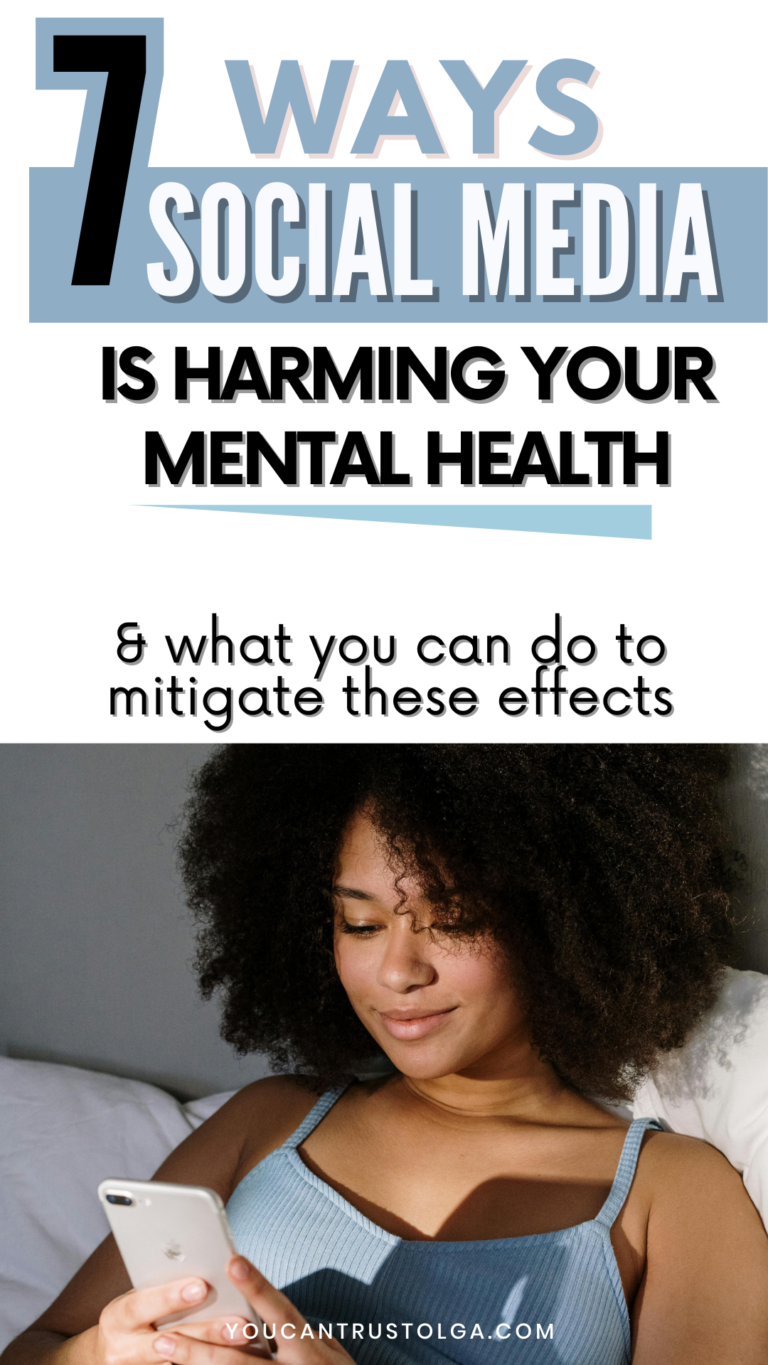In the digital age, social media has become a ubiquitous presence in our daily lives. It has transformed the way we communicate, share information, and consume content. With its many benefits, however, comes a darker side that often goes unnoticed—the impact on our mental health.
As of late, concerns surrounding the negative psychological effects of social media have been amplified. Whether it’s the pressure to present a “perfect” life online, the addictive nature of scrolling feeds, or the often-toxic environment in comment sections, social platforms have been linked to increased rates of anxiety, depression, and feelings of inadequacy.
Understanding the extent of social media’s influence on our psychological well-being is crucial. Here, we’ll explore seven ways in which platforms like Facebook, Instagram, and Twitter may be harming your mental health and what you can do to mitigate these effects.

1. The Culture of Comparison
The Illusion of Perfection
One of the most insidious impacts of social media is the promotion of an idealized, almost unattainable standard of living. People tend to only share the HIGHLIGHTS of their lives, creating an unrealistic benchmark that others feel pressured to live up to. But in reality, life is a mix of ups and downs.
Solution: Reality Checks
Practicing self-awareness and reminding yourself that what you see online is often a carefully curated highlight reel can help lessen the blow to your self-esteem. Engaging in realistic self-appraisal and setting achievable personal goals can also be beneficial.
2. Social Isolation and FOMO
The Paradox of Connectivity
Despite social media’s promise of interconnectedness, studies have suggested that excessive use can lead to feelings of loneliness and social isolation. This contradictory effect can be attributed to superficial interactions that fail to fulfill our need for deeper connections.
Solution: Quality Over Quantity
Focusing on fostering genuine relationships and reducing screen time can combat the isolation social media may generate. Organize social gatherings, call a friend to catch up, or join local interest groups to add more meaningful interactions to your life.
3. Increased Anxiety and Depression
The Pressure to Perform
The relentless exposure to others’ lives and expectations, alongside social comparison, triggers a heightened sense of anxiety and contributes to depressive symptoms. The fear of missing out (FOMO) can intensify these feelings, as the constant updates can make you feel like you should be doing more.
Solution: Mindful Engagement
Practicing mindfulness and regulating your social media intake can safeguard your mental health. Use tools available on platforms to set time limits, unfollow accounts that trigger negative emotions, and consider taking breaks from social media altogether.
4. Distorted Self-Image and Body Issues
The Filtered Reality
Social media’s emphasis on physical appearance—fueled by edited photos and the popularity of selfies—can warp your self-perception and lead to body dysmorphia and self-esteem issues, particularly among young users.
Solution: Reality Checks
Follow accounts that promote body positivity and authenticity. Limiting your exposure to overly curated feeds and being critical of the media you consume can help reframe unrealistic body image ideals.
5. Sleep Disruption
The Endless Scroll
The blue light emitted by screens, along with the emotional engagement of social media, can disrupt your natural sleep cycle, making it hard to fall asleep and affecting the quality of your rest. This, in turn, can lead to a decline in mental sharpness and overall cognitive function.
Solution: Digital Detox Before Bed
Establish a digital curfew to wind down for the night. Engaging in relaxing activities, such as reading a book or taking a warm bath, can replace the urge to check your social media feeds and contribute to better sleep hygiene.
6. Online Harassment and Cyberbullying
The Dark Side of Anonymity
The relative anonymity provided by the internet can bring out the worst in some individuals, leading to incidents of cyberbullying and harassment, which can be intensely traumatic and lead to long-lasting psychological distress.
Solution: Protect Your Space
Implement tight privacy settings, and if necessary, block or report abusive users to prevent unwanted interactions. It’s important to remember that you have control over who and what you allow into your online space.
7. Addiction and Impulse Control
The Pull of Notifications
Social media platforms are designed to be addictive, often employing techniques like push notifications and variable rewards to keep you returning for more. This can lead to compulsive behavior patterns and difficulty in managing your time online.
Solution: Boundaries and Awareness
Developing a greater awareness of your social media use and setting clear boundaries can help break the cycle of addiction. Consider periods of social media fasting and find alternative, productive activities to fill the void.
Conclusion
Social media, when used in moderation and with mindfulness, can be a powerful tool for staying connected and informed. However, an over-dependence on these platforms can lead to significant mental health challenges.
By recognizing the potential pitfalls and taking deliberate steps to manage your online interactions, you can enjoy the benefits of social media while safeguarding your mental





